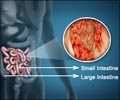The percentage of adults aged 19 to 64 uninsured at first-time cancer diagnosis did not increase after medicaid expansion.

‘Policy changes that reduce Medicaid funding or weaken protections for individuals with pre-existing condition could be particularly harmful to patients with cancer.’





The study looked at the percentage of adults (ages 19 to 64) uninsured at first-time cancer diagnosis and analyzed changes in 2014, when the ACA health insurance exchanges and Medicaid expansion went into effect, compared with pre-ACA from 2010 through 2013. The authors had data for 858,193 adults with new cancer diagnoses. The authors report that before 2014, 5.73 percent were uninsured compared with 3.81 percent in 2014, a 1.92 percentage point decrease. Coverage gains happened across numerous cancers, multiple demographic groups, including Hispanic individuals, and early- and late-stage disease.
In addition, the uninsured rate was flat in states without Medicaid expansion before and after 2014 but it declined in 2014 in states with Medicaid expansion, according to the results.
Limitations of the study include data from 13 states and one year of data post-ACA.
"Future research should examine effects of coverage on cancer diagnoses, treatment, and outcomes. Policy changes that reduce Medicaid funding or weaken protections for individuals with a pre-existing condition could be particularly harmful to patients with cancer," the article concludes.
Advertisement














